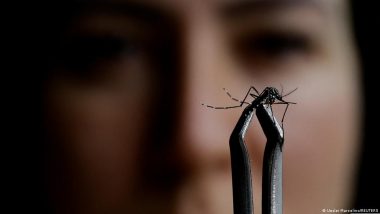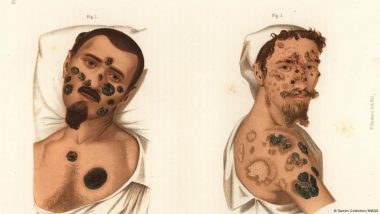Italy reported its first case of Oropouche fever, a mosquito-borne disease common in Latin and South America, this month.Italy reported its first-ever case of Oropouche fever, a mosquito-borne disease, on June 15. It’s also the first case ever to be detected in continental Europe. Latin America and the Caribbean have already seen outbreaks this year.
The patient diagnosed in Italy had recently returned from a trip to the Caribbean, Italian newspaper Il Messaggero reported, citing public health authorities.
Oropouche virus disease is transmitted through the bites of infected midges and mosquitos. Although the disease has long been circulating in Central and South America and the Caribbean, some countries have seen a sharp rise in diagnosed cases this year. Brazil has reported more than 5,500 cases so far in 2024, compared to about 840 cases in 2023.
The disease is also spreading to countries that have never detected cases of Oropouche fever before. On June 11, the WHO reported the first-ever outbreak in Cuba, which included some 70 confirmed cases. "This is the first detection of the disease in the country, therefore, the population is likely highly susceptible and there is significant risk of additional cases being detected," the report noted.
Symptoms similar to dengue
Oropouche fever is caused by the Oropouche virus, which is transmitted most often through the bite of the Culicoides paraensis midge. There is no evidence of human-to-human transmission of the disease.
Symptoms of the disease are similar to dengue, and typically start between four and eight days after the bite. The onset is sudden, and symptoms usually include fever, headaches, pain, chills, joint stiffness, and sometimes nausea and vomiting. Most patients recover in about seven days. According to the WHO, severe cases are rare.
There is no specific vaccine or antiviral treatment available for the disease.
Climate may play a role
Oropouche fever is an understudied illness, as the authors of a May 2023 paper published in the journal Infectious Diseases of Poverty noted. As a result, the disease’s epidemic potential and areas of likely spread remain "unexplored."
Although most cases of Oropouche fever thus far have been linked to tropical climate conditions, the authors noted that the lack of available data makes it difficult to draw precise conclusions. For example, some outbreaks have occurred outside the tropical conditions typically associated with transmission events.
Although much remains unclear about the virus and its spread, the authors also noted that vegetation loss and deforestation appear to be associated with outbreaks of the disease.
Edited by: Patricia Szobar
Sources
Oropouche virus disease - Cuba: https://www.who.int/emergencies/disease-outbreak-news/item/2024-DON521
Transmission risk of Oropouche fever across the Americas: https://pubmed.ncbi.nlm.nih.gov/37149619/
(The above story first appeared on LatestLY on Jun 25, 2024 06:20 PM IST. For more news and updates on politics, world, sports, entertainment and lifestyle, log on to our website latestly.com).













 Quickly
Quickly





















